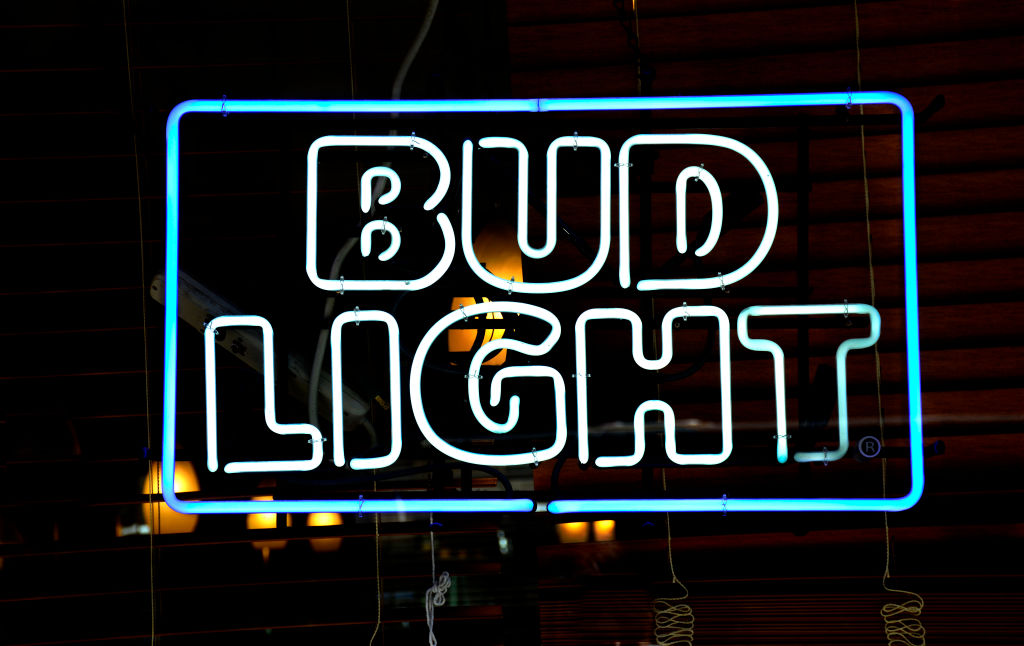In 1994, Bud Light’s marketing team came up with an advertising campaign that featured a bunch of men badly impersonating women and making a mockery of gender.
In 2023, a different marketing team for the same beer came up also came up with an advertising campaign that featured a man badly impersonating a woman and making a mockery of gender.
Sounds about the same — and yet, in 29 years, one can espy a world of difference. Namely, these days, the Bud Light ad people can’t figure out when a man is badly impersonating a woman, much less what gender is.
You may have seen this gem when it was new, particularly if you were an avid sports fan. I’d forgotten about it until seeing it again in a different context and remembering just how ubiquitous it was if you were watching anything that involved athletic competition.
In the ad, a bunch of men in dresses (some with facial hair) compete in “Ladies Pool Night.” The reason? “1st Prize Bud Light.”
And oh boy, do they clean up:
[firefly_embed]
https://youtu.be/ttv7uN8-5jc
[/firefly_embed]
“These guys are good,” one of the women in the ad says as one of the cross-dressers knocks another ball into pocket.
“Who are you calling guys?” one of the men says in faux outrage.
Today, of course, that would be real outrage — and if this happened on a college campus, one could easily see it as being reason for expulsion.
The punchline comes when they come face-to-face with “the defending ladies’ pool champion” — another man, this one the Bud Light spokesman famous for the then-brand catch-phrase, “Yes, I am.”
For those of you who forget the origins of the “Yes, I am” campaign, another refresher:
[firefly_embed]
[/firefly_embed]
However, that commercial isn’t quite as relevant in 2023 now that Dylan Mulvaney is/was the face of Bud Light. The cross-dressing ad, on the other hand, has been getting a bit of attention in the comments section in recent weeks, for obvious reasons.
“There’s no way anyone could realize how prophetic this commercial was,” one commenter said.
“Life imitates bad art,” another added.
And then there were those who missed the point: “lol and these Trumpers boycotting bud light yet these commercials existed in the 90s…… there almost 30 years late to the boycott,” one commenter, assumedly liberal, said.
Yes, except one might call this commercial “fraternity” humor — and, as we well know, Bud Light wants none of that.
Bud Light’s marketing Vice President Alissa Heinerscheid slanders her customer base as “fratty and out of touch” as she defends the decision to hire a tranny to promote their products.
Who the hell hires these people? ?pic.twitter.com/Lv3LW4OKs4
— Collin Rugg (@CollinRugg) April 10, 2023
This is Bud Light vice president of marketing Alissa Heinerscheid on a podcast just before the brand’s campaign with transgender influencer Dylan Mulvaney launched, saying “Bud Light had been kind of a brand of fratty, kind of out-of-touch humor.”
Instead, she said she had “a belief in ‘OK, what does evolve and elevate mean?’ It means inclusivity. It means shifting the tone. It means having a campaign that’s truly inclusive and feels lighter and brighter and different and appeals to women and to men.”
That included an entirely straight-faced campaign with Mulvaney, a transgender male whose “365 Days of Girlhood” campaign gained him over 10 million followers on Twitter. Unlike the commercial, the campaign was entirely straight-faced — even though Mulvaney’s obviously exaggerated idea of what it means to be a female is camp at best. If he doesn’t pass as female, it’s just because, unlike the men in this Bud Light ad, he’s gone too far in the other direction.
Now, of course, the backpedaling from the Mulvaney campaign has become so obvious that it’s unintentionally hilarious. Witness this, for instance:
— Budweiser (@budweiserusa) April 14, 2023
There’s nothing that says “we screwed up” like having to slap together a minute-long montage of a CGI Clydesdale galloping past American landmarks while a very serious, gravelly sounding narrator tells us “a story about a beer rooted in the heart of America.”
They’d have done better with the pool-playing cross-dressers from 1994, to be honest. Not that it’s much better, but at least it’s mildly amusing — and it’s not corporate America spitting in the face of its own customers for the sake of wokeness.
This article appeared originally on The Western Journal.

























 Continue with Google
Continue with Google